The Ultimate Guide to Chlorine in Swimming Pools
The use of chlorine in pools is not a new phenomenon and it has been used for over a century. It is one of the most widely used chemicals in the world and is recognized as an effective disinfectant.
Chlorine has been found to be more effective than other disinfectants like bromine and ozone. And it’s also cheaper than other disinfectants making it an attractive option for pool owners.
In this article, we’ll go over what chlorine is, why we need chlorine in pools, how chlorine is used in swimming pools, and the side effects chlorine can have on our hair and body.
Let’s get started.
What is chlorine and why is it important?

Chlorine is a chemical used in pools to disinfect the water because it kills bacteria and other microorganisms in the pool water.
It has many chemical properties, which makes it so useful. One of the most important properties of chlorine is killing bacteria and other microorganisms in the pool water, which prevents people from getting sick while swimming in the pool.
There are three main ways to use chlorine: chlorination, oxidation, and chlorination. These processes are all used to kill bacteria and viruses in drinking water that can cause illness or death.
The free chlorine level in a swimming pool is usually between 1 - 3 ppm (parts per million). This level helps prevent bacteria from building upon the pool’s surface and protects against pathogens such as Cryptosporidium or Giardia.
Health problems associated with chlorinated pools
The CDC recommends that you limit your exposure to the chemicals in pools by staying out of the water for long periods of time. If you decide to swim, they suggest a break from swimming every hour and showering before going back in the water.
Swimming in a chlorinated pool can be dangerous if you have asthma or other respiratory problems. Chlorine is used to kill bacteria and keep pools clean, but it can also irritate your skin and lungs. People with asthma should avoid swimming for prolonged periods of time because chlorine can aggravate their symptoms.
The side effects of swimming in a chlorinated pool

The general public doesn’t always know the side effects of swimming in a chlorinated pool. The chlorine in the pool can cause adverse effects on people's skin and hair.
It is important to note that chlorine itself does not cause these side effects but the chemical reaction between chlorine and other substances in the water.
Here’s a list of side effects:
- Over time, chlorine bonds to your hair, causing issues such as loss of shine, split ends, and damaged hair strands.
- Natural oils in your hair are removed by chlorine, leaving it dry, rough, and damaged.
- Chlorine makes your hair porous and brittle, thus making it prone to breakage.
- The presence of chlorine in water may cause chemical reactions in the water that alter hair’s natural color, cause weakening of hair strands, and result in split ends. However, chlorine isn't responsible for the change in hair color. It’s because of metals in the water, such as copper, that chlorine has oxidized. Your hair absorbs the oxidized copper, making it appear slightly green.
- Exposure to chlorine over time can lead to premature aging and can adversely affect the skin’s health.
- Rashes can occur when exposed to chlorine for a prolonged period of time.
- If a person has pre-existing conditions such as eczema, dermatitis, or psoriasis, it may exacerbate them.
How to make your swimming pool safer and protect your skin and hair while swimming
One way to make your pool safer is to minimize your risk of exposure by keeping the chlorine levels at a safe level. This will help lower the risk of eye irritation and damage to hair and skin. With a little bit of maintenance, you can keep your pool safe for all to enjoy.
However, it will not fully protect you against chlorine. To prevent damage, create a protective layer on your hair and skin. Here’s how to do it.

Before you get into the pool
- Apply a pre-swim conditioner to provide a protective layer that effectively neutralizes the absorption of pool chemicals in your hair.
- Like with the pre-swim conditioner, apply a pre-swim body lotion to create a protective layer around your skin that effectively neutralizes the absorption of pool chemicals.
After you get out of the pool
- Take a shower immediately after getting out of the pool to cleanse your body from any pool chemicals on you. If you can’t shower immediately, change to dry clothes to prevent any more chlorinated water from being absorbed into your hair and skin.
- Use a swimmer’s shampoo to remove pool chemicals from your hair, hydrate dry hair, remove chlorine scent, and relieve potential itchy scalps caused by pool chemicals.
- Use a swimmer’s body wash to remove pool chemicals from your skin, hydrate and rejuvenate dry skin, remove chlorine scent from the skin, and calms irritated skin post-workout.
- If you feel discomfort on your face after swimming in an outdoor pool or open water, cleanse your face with a swim and sun face wash. These specialized products gently and effectively remove pool chemicals and saltwater and relieve dry and sunburned skin post-swim.
Summary
Chlorine has been used in swimming pools for over a century. It is an effective disinfectant and is cheaper than other disinfectants. This is important because it prevents people from getting sick from swimming in the pool.
The level of free chlorine in a swimming pool is usually between 1 and 3 parts per million, and it helps prevent bacteria from building up and pathogens such as Cryptosporidium.
The CDC recommends that you stay out of pools for long periods of time and use showers every hour. People with Asthma should avoid swimming for prolonged periods of time because chlorine can irritate their skin and lungs.
Swimming in chlorinated pools can cause side effects on people's skin and hair. The chemical reaction between chlorine and other substances in the water can cause unintended consequences such as irritation, causing hair to lose shine, causing split ends, and damaging strands, and changing the natural color of hair, among other things.
Keeping the chlorine levels in your pool at a safe level will help prevent hair damage and skin irritation, but it will not fully protect you.
Apply a pre-swim conditioner to your hair and apply a pre-swim body lotion to your body to neutralize chlorine absorption. After getting out of the pool, take a shower to remove pool chemicals from your hair and skin, and use a swimmer's shampoo and body wash to remove chlorine and its scent, as well as relieve dry skin and itchy scalps.


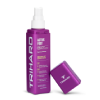



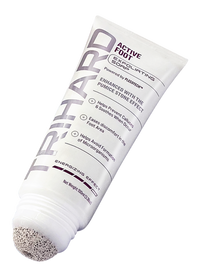



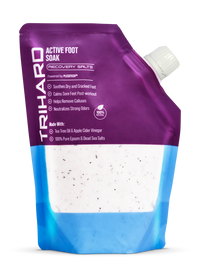




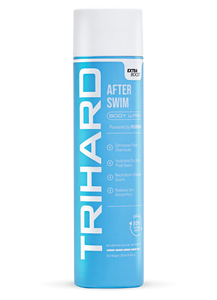
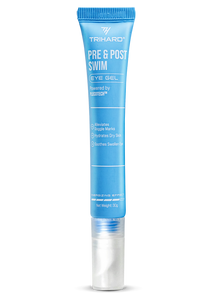


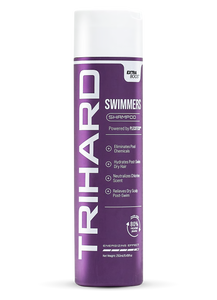









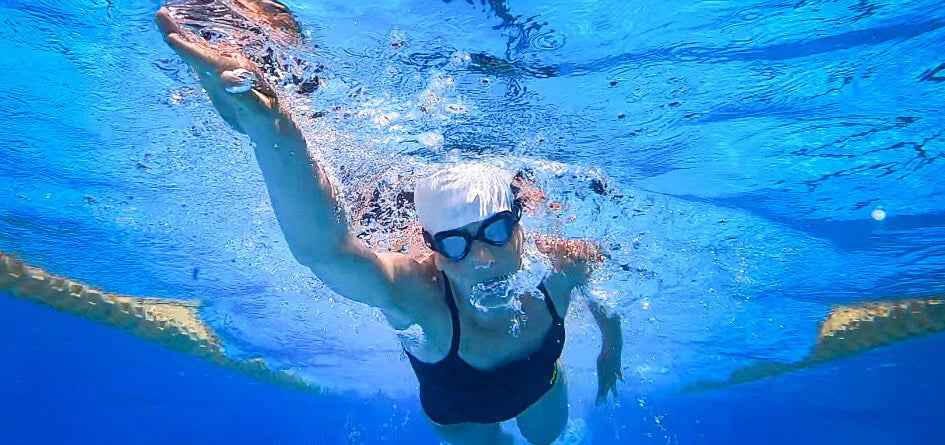
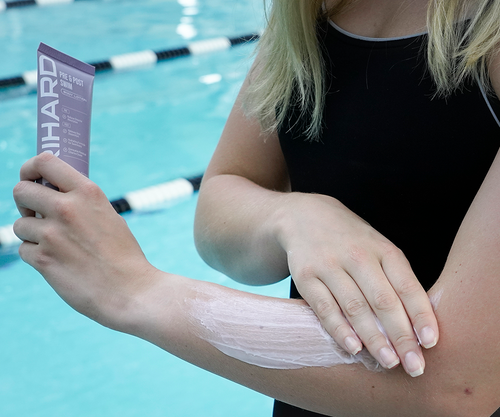

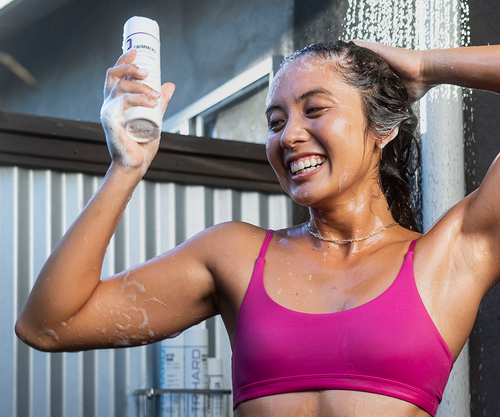

Leave a comment